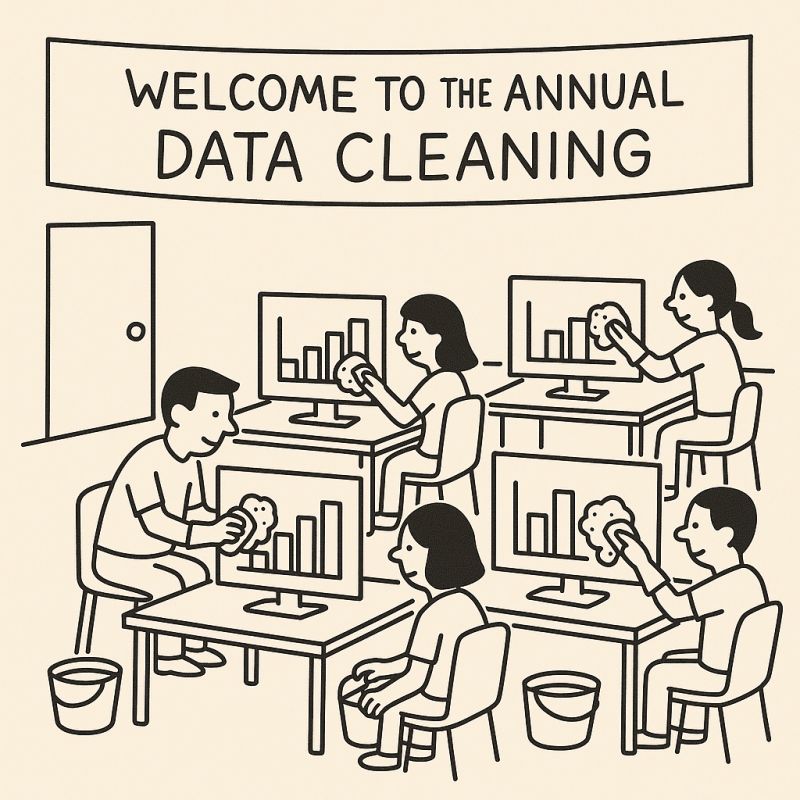The real work of AI isn’t cleaning your data—it’s cleaning your house.
There’s a comforting myth in AI: that value begins with clean data. Label it, migrate it, model it. Treat it like a product. Then plug in the models and let the insights flow.
It’s appealing because it makes a hard, messy problem sound like a technical checklist.
But here’s the truth: clean data doesn’t make you AI-ready. In fact, the reverse is more accurate. Sustainable data quality is the outcome of an organization that’s AI-ready—not just technically, but operationally. It starts with structure, ownership, and culture.
Yes, of course, you need high-quality data. But data quality rarely fails because something’s fundamentally wrong with your IT—it fails because no one agrees on definitions, no one owns the source, and governance is murky. When a VP asks what “revenue” means and three directors give four answers, that’s not a data problem. That’s an organizational one. And no amount of ETL will fix it.
Of course, even strong governance has its limits if your goal is to make data “universally ready” for unknown use cases. Marketing wants to predict churn. Product wants to optimize features. Finance wants to forecast revenue. Each needs different timeframes, filters, and definitions. You can’t pre-clean data for use cases you haven’t even imagined yet. General AI-readiness is a mirage.
What you need instead are systems designed for adaptability. Systems where data can be shaped for the task at hand—quickly, responsibly, and with clear accountability. Finance reconciles books. Engineering meets SLAs. Data deserves the same discipline, with flexibility built in.
Here’s a test: ask your CFO what your data is worth. Not the cost to store it, or the salaries around it—but its actual business value. If they don’t have an answer—or if the question seems absurd to them—then you’re not treating data as an asset. You’re treating it as overhead.
Data doesn’t carry intrinsic value. Its worth depends on the systems around it, the trust built into it, and the decisions it enables. A flawless dataset that sits untouched is worthless. A messy one that drives profitable action? Invaluable.
Until your data changes how your business operates, it isn’t an asset. It’s just potential.
